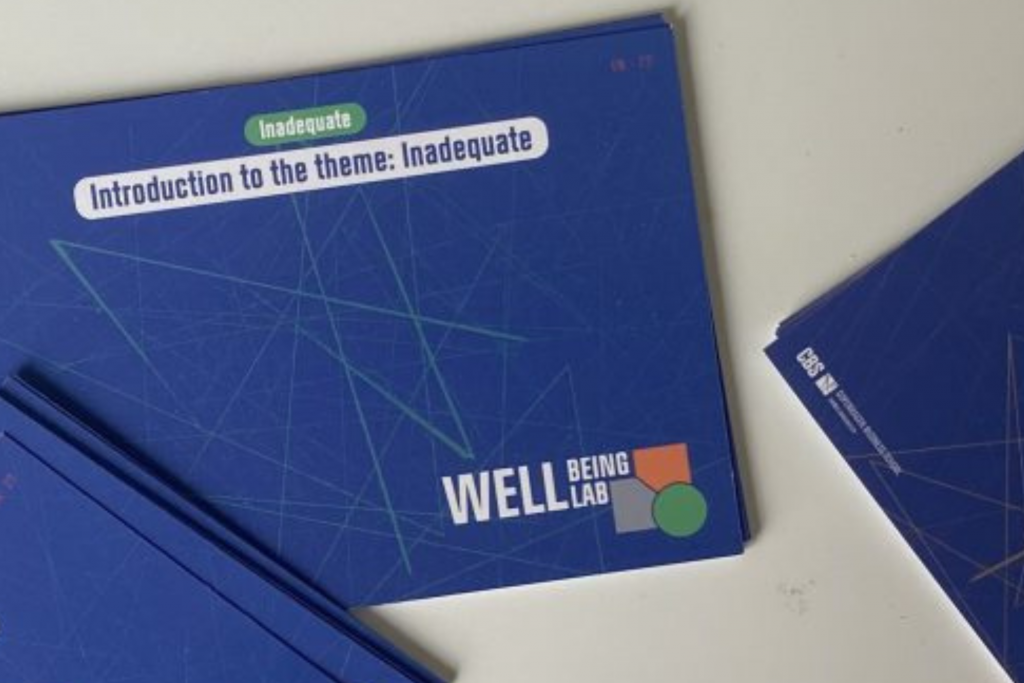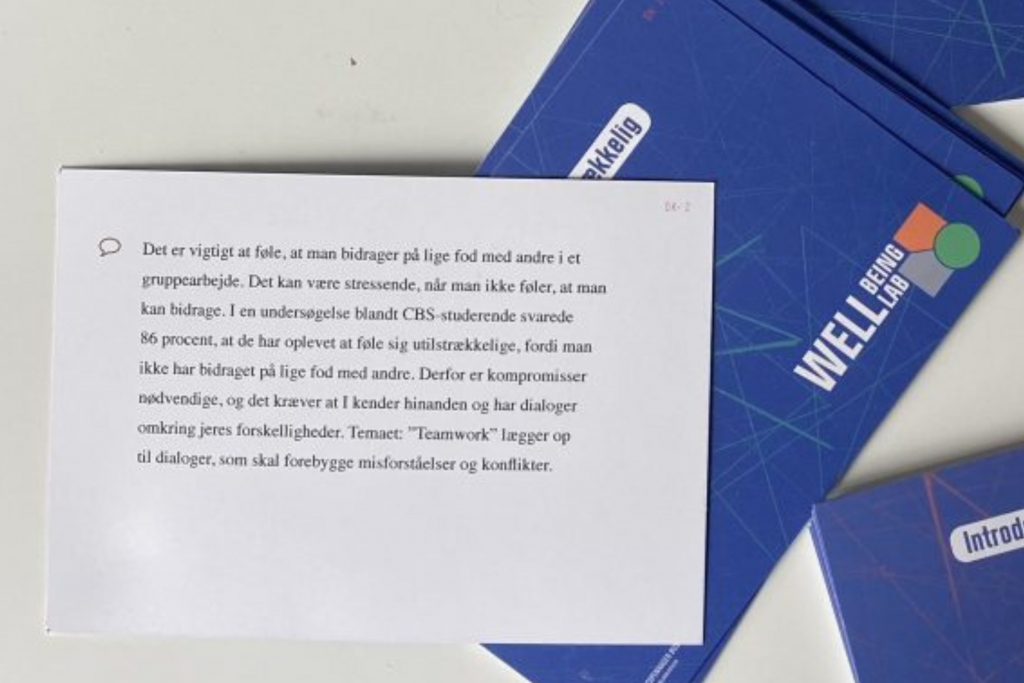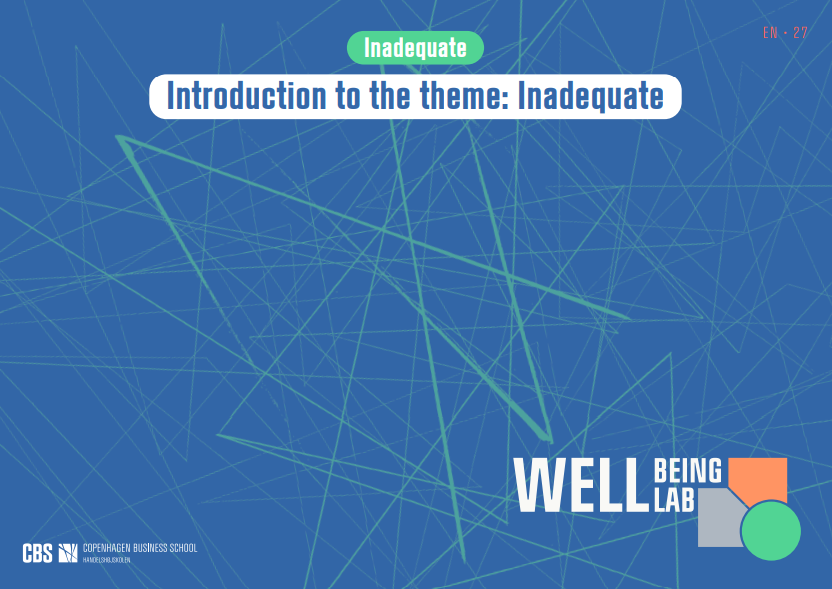Feedback from students
The cards have been tested among different groups of students at CBS and at some high schools.
On this page we will share a bit of the feedback we have received from students using the cards and what it implies about how the cards might work.
Normalizing difficulties and learning about oneself and others
When examining the feedback we have received from students testing the cards their responses can be divided into three types of categories describing what they gained: 1. normalizing study challenges and insecurities, 2. gaining new insights about oneself, and 3. gaining new insight about others.
Many students shared that the discussions arising from the dialogue cards helped them to see how they were not alone in their study life struggles and that many issues were common concerns in the group, which provided a sense of relief and more courage to share. This is important to increase psychological safety in groups and an environment.
“First of all, I learned something new about my fellow students which have done so that I better can help them in the future. Talking about how sometimes it is hard and difficult to study with some of my fellow students meant that I found out that I was not alone with those thoughts which gave me a sense of security. You also got to know yourself a little more when you had to think about how you felt.”
– Student after using the cards
It was a common feedback that cards enables conversations that the students not typically would have together or which normally might be hard to take, or reserved to the few people they are close to. Speaking more openly with other students many expressed gave a better sense of themselves and others in different regards. Some were even surprised by what they learned about themselves.
Understanding others give rise to more compassion
It seems that when the conversation enabled a greater understanding of others, it also seemed to foster more empathy or compassion, for example expressed in a desire to help each other.
“We were all agreeing that actually we want to help others who feel pressured (..) It gives a safety to know that others are ready to help.”
– Student after using the cards

The importance of building trust and psychological safety
Trust is an important element for establishing a dialogic environment where students feel safe and empowered to speak up about concerns and get outside their comfort zone. The fear of being perceived badly by others or even ridiculed makes many stay silent and creates silence cultures, in study environments as well as in work places. Psychological safe environments imply that people feel safe to ask questions, share doubts and come with ideas. The fear of judgment doesn’t hold them back. Research has shown that it takes a conscious effort to create such safe environments, see for example the work of Amy C. Edmondson.
The evaluation of the cards showed that they created opportunities for students to identify common issues collaboratively to build trust.
“I was very surprised by the fact that it was very easy for everyone to talk about situations where we have been stressed and not least that it is something we so often all experience”
– Student after using the cards
More feedback from students
“I thought: “Is this really how I am?” It was in a way a surprise even if I already knew it. It also surprised me that I allowed myself to be open. Because I felt safe in the group I was in, and I just wanted to open up more and listen to the others even more. ” – CBS Student after using the cards

“I know the feeling of being stressed, which is nice to be able to talk to classmates about, but also merely to receive the acknowledgement from the information on the cards. It is great to know that you are not the only one feeling this way, and that things are difficult for everyone once in a while.” – Student after using the cards

Across the three different themes of the cards the dialogues it facilitated enabled students to share more openly their difficulties, insecurities, or failures. Some terms often used to describe the experience of using the cards were words like “liberating”, “a relief”, “nice”, and “great to the experience of being free to share together.”
“It gave food for thought and you felt more normal hearing that others felt the same way [insecurity].”
“The most important lesson was that everyone more or less feels the same way. Then you are not alone, and everyone feels pressure now and then.”
“When others say that they also feel pressured from an assignment; it is nice to know, that you are not alone in that experience, and that it is not strange that you have difficulties.”
– Students after using the cards
Video feedback from students
In the following we have gathered some feedback on video from students who have used the cards.
Olga Kristiane Lydert Wittenborg, cand.merc.psyk and Nina sperling, cand.merc.psyk.
Nina sperling, cand.merc.psyk and Sofia Borup Baggesen, cand.merc.fsm
Peter Græsbøll Holm, cand.soc
Peter Græsbøll Holm, cand.soc and Olga Kristiane Lydert Wittenborg, cand.merc.psyk
Mie Holmboe Olsen, Master in EBA and Sara Winum, cand.merc.psyk
